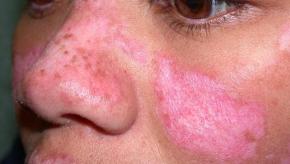All News
Best of 2024: Analgesic Prescribing in Patients with Inflammatory Arthritis
A UK cross-sectional EHR clinical practice analysis between 2004 and 2020 shows that analgesic prescribing in inflammatory arthritis patients has declined, but still remains substantial, including opioid prescribing. Data was drawn from the Clinical Practice Research Datalink Aurum to evaluate analgesic prescription annual prevalence in patients with RA, PsA and axSpA and found that analgesic prescribing declined over time but remained common.
Read ArticleBah Humbug Vitamin D (12.20.2024)
Dr. Jack Cush reviews the news and journal reports from this past week on RheumNow.com.
Read ArticleAbuse of the Safety-Net 340B Drug Programs
Dr. Madelaine Feldman has written an important commentary on the 340B Drug Pricing Program, a safety-net program that would allow vulnerable populations to receive expensive new therapies. But she points out that "this well-intentioned program has strayed from its original purpose", allowing certain hospitals and for-profit pharmacies to exploit the program.
Read ArticleTocilizumab Efficacy in Giant Cell Arteritis Phenotypes
A Spanish Collaborative Group study of Tocilizumab (TCZ) in Giant Cell Arteritis (GCA) demonstrated high efficacy regardless of the different vascular phenotypes treated.
Biosimilars Do Impact Biologic Drug Costs
Introduction of biosimilars for the rheumatology drug adalimumab, whose original branded version Humira has long been a blockbuster, appears to have led to a dramatic drop in net spending for these products -- even though biosimilars barely dented Humira prescription rates.
Read Article54K Peptic Ulcers Annually (12.13.2024)
Dr. Jack Cush reviews the news and journal reports from the past week on RheumNow.com
Read ArticleSafety of Acetaminophen in the Elderly
New research, led by experts at the University of Nottingham, has found that repeated doses of paracetamol in people aged 65 and over, can lead to an increased risk of gastrointestinal, cardiovascular and renal complications.
Read ArticleTreat-to-Target LLDAS in Lupus
Patients with highly active systemic lupus erythematosus (SLE) appeared to sustain much less organ damage and fewer disease flares when drug therapy yielded substantial relief, researchers found.
Read ArticleDrug-Free Remission in Giant Cell Arteritis is Uncommon
A Spanish retrospective registry study of patients with giant cell arteritis (GCA) found that 3-4 years after diagnosis, only 21% of patients with GCA successfully reached the sustained drug-free remission (SDFR).
Way Behind in Pediatric Rheumatology
While adult rheumatology fellowships have surged in popularity and become quite competitive, more than half of pediatric rheumatology fellowship positions went unfilled in 2024, according to the National Resident Matching Program (NRMP).
Read ArticleDon’t Buy Guitars (12.6.2024)
This year at ACR24, the RheumNow faculty and reporters were prolific, generating >800 Tweets, 56 written articles, 117 Videos and 28 podcasts – all in 4 days! You can best review and learn ACR24 by A) Rheumatology Roundup; b) Topic Panel videos; and c) Topic podcasts.
Read ArticleChallenge in Measuring Cutaneous Lupus Activity and Severity
JAMA Dermatology features a discussion by Drs. McMichael and Frey on measuring lupus skin disease in clinical trials and practice using the validated Cutaneous Lupus Erythematosus Disease Area and Severity Index (CLASI).
Read Article






Links:














